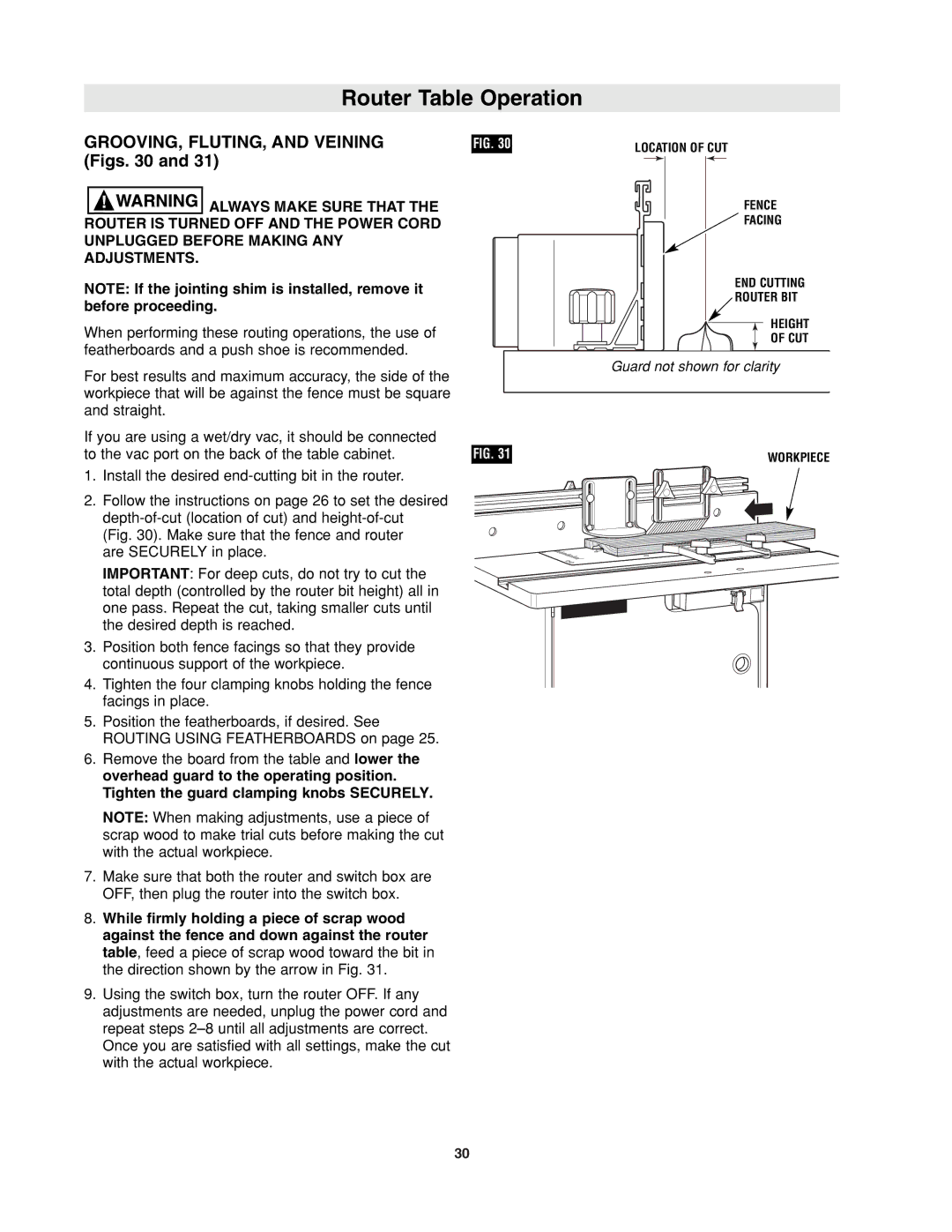
Router Table Operation
GROOVING, FLUTING, AND VEINING | FIG. 30 |
(Figs. 30 and 31) |
|
ALWAYS MAKE SURE THAT THE |
|
ROUTER IS TURNED OFF AND THE POWER CORD |
|
UNPLUGGED BEFORE MAKING ANY |
|
ADJUSTMENTS. |
|
NOTE: If the jointing shim is installed, remove it |
|
before proceeding. |
|
When performing these routing operations, the use of |
|
featherboards and a push shoe is recommended. |
|
For best results and maximum accuracy, the side of the |
|
workpiece that will be against the fence must be square |
|
and straight. |
|
If you are using a wet/dry vac, it should be connected | FIG. 31 |
to the vac port on the back of the table cabinet. | |
1. Install the desired |
|
2. Follow the instructions on page 26 to set the desired |
|
| |
(Fig. 30). Make sure that the fence and router |
|
are SECURELY in place. |
|
IMPORTANT: For deep cuts, do not try to cut the |
|
total depth (controlled by the router bit height) all in |
|
one pass. Repeat the cut, taking smaller cuts until |
|
the desired depth is reached. |
|
3. Position both fence facings so that they provide |
|
continuous support of the workpiece. |
|
4.Tighten the four clamping knobs holding the fence facings in place.
5.Position the featherboards, if desired. See ROUTING USING FEATHERBOARDS on page 25.
6.Remove the board from the table and lower the overhead guard to the operating position. Tighten the guard clamping knobs SECURELY.
NOTE: When making adjustments, use a piece of scrap wood to make trial cuts before making the cut with the actual workpiece.
7.Make sure that both the router and switch box are OFF, then plug the router into the switch box.
8.While firmly holding a piece of scrap wood against the fence and down against the router table, feed a piece of scrap wood toward the bit in the direction shown by the arrow in Fig. 31.
9.Using the switch box, turn the router OFF. If any adjustments are needed, unplug the power cord and repeat steps
LOCATION OF CUT
FENCE
FACING
END CUTTING
ROUTER BIT
HEIGHT
OF CUT
Guard not shown for clarity
WORKPIECE
30
